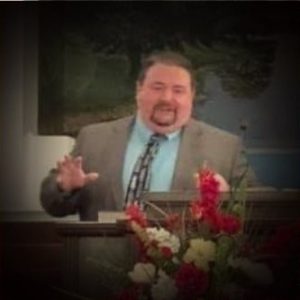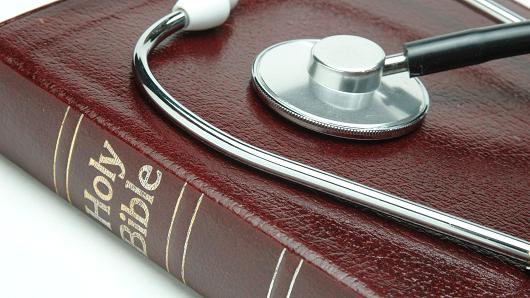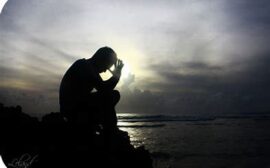By: Brian G. Chilton | April 20, 2020
Recently, New York Governor Andrew Cuomo raised the ire of many by holding that God should not be given credit for the plateau of the COVID-19 virus in the state of New York. Cuomo stated,
“The number is down because we brought the number down. God did not do that. Faith did not do that. Destiny did not do that. A lot of pain and suffering did that. That’s how it works. It’s math. And if you don’t continue to do that, you’re going to see that number go back up. And that will be a tragedy if that number goes back up.”[1]
Rather than commenting on the intent behind Cuomo’s statement, I would rather look at a deeper theological issue behind Cuomo’s statement. Does God operate within free human behaviors? To answer this question, let’s consider three biblical case studies. Two of them will be narrative stories in the Bible and the third will be a proverb.
Case Study One: The Hardening of Pharaoh’s Heart. This Scripture passage has been evaluated on numerous occasions here at the website. However, it bears on the current discussion. God tells Moses that he will harden Pharaoh’s heart three times (Exod. 4:21; 7:3; and 14:4). On seven occasions, Exodus uses the divine passive to illustrate that God hardened Pharaoh’s heart (Exod. 7:13, 14, 22; 8:19; 9:7, 35; and 14:5). Three times Exodus notes that Pharaoh hardened his own heart (Exod. 8:15, 32; 9:34). God initiated the process, however, Pharaoh freely responded to the work of God in his life. In like manner, God appeared to Moses in a burning bush and commanded him to go to Pharaoh to order him to let the Hebrew people go (Exod. 3:1–17). Even then, God initiated the process, but it was Moses who responded to God’s call.
Case Study Two: Healing of the Blind Man. Jesus often required human actions to complete the work of healing that he initiated. For instance, after meeting a blind man at the pool of Siloam, Jesus spat into some mud and made some kind of spread to rub on the eyes of the blind man. Afterward, Jesus instructed the man to go and wash in the Pool of Siloam (John 9:7). After doing so, the blind man was able to see. Christ brought about healing. Yet, that healing required human action, as well.
Case Study Three: Philosophical Proverb. In the book of Proverbs, the correlation between the divine and humanity in human actions is seen in the 16th chapter which reads, “A person’s heart plans his way, but the Lord determines his steps” (Prov. 16:9). That is to say, even though people make decisions, God directs their steps. A person can come up with vaccines and strategies, but it is up to God whether those vaccines, strategies, and plans are successful or not.
In the three previous case studies, three conclusions can be drawn. First, God is responsible for the success of any good thing that exists. God is the Creator and Sustainer of all things. If it were not for the hand of God, then nothing could be successful because nothing would continue to exist. Thomas Aquinas notes, “But no created substance is united to the intellectual soul in its inmost being except God alone, who alone is the cause and sustainer of its being.”[2] Without God, it wouldn’t matter what a person tried to do because nothing could exist if it were not for the sustaining hand of God.
Second, the actions of a person either follow the leadership of God or live in a state of rejection. The ancient theologians and philosophers Aquinas, Molina,[3] Suarez, and John Damascus all seemed to hold that God was the primary mover, but people were secondary agents. John of Damascus, writing in the late 600s or early 700s, denotes the following:
“We believe, then, in One God, one beginning, having no beginning, uncreate, unbegotten, imperishable and immortal, everlasting, infinite, uncircumscribed, boundless, of infinite power, simple, uncompound, incorporeal, without flux, passionless, unchangeable, unalterable, unseen, the fountain of goodness and justice, the light of the mind, inaccessible; a power known by no measure, measurable only by His own will alone (for all things that He wills He can), creator of all created things, seen or unseen, of all the maintainer and preserver, for all the provider, master and lord and king over all, with an endless and immortal kingdom: having no contrary, filling all, by nothing encompassed, but rather Himself the encompasser and maintainer and original possessor of the universe, occupying all essences intact and extending beyond all things, and being separate from all essence as being super-essential and above all things and absolute God, absolute goodness, and absolute fulness: determining all sovereignties and ranks, being placed above all sovereignty and rank, above essence and life and word and thought: being Himself very light and goodness and life and essence, inasmuch as He does not derive His being from another, that is to say, of those things that exist: but being Himself the fountain of being to all that is, of life to the living, of reason to those that have reason; to all the cause of all good: perceiving all things even before they have become: one essence, one divinity, one power, one will, one energy, one beginning, one authority, one dominion, one sovereignty, made known in three perfect subsistences and adored with one adoration, believed in and ministered to by all rational creation, united without confusion and divided without separation (which indeed transcends thought).”[4]
He goes on to say, “Sin is the result of the free volition he enjoys rather than an integral part of his nature; that is to say, he has the power to continue and go forward in the path of goodness, by co-operating with the divine grace, and likewise to turn from good and take to wickedness, for God has conceded this by conferring freedom of will upon him.”[5] God is the Uncaused Cause, the Prime Mover. So, any good that humans do ultimately find their root in God. Evil and sin find their root in the rebelliousness of humanity against the good plan of God.
Third, healing may involve human efforts, but ultimate healing always comes from God. Just as was evident in Jesus’s healing of the blind man at the Pool of Siloam, healing may involve human effort. But the result of healing always belongs to God. Why? On the one hand, God is the Creator and Sustainer of all things. On the other hand, healing always involves God’s involvement in some form or fashion, even if he acts through medicine. Just as Jesus required the use of water at the pool to bring the blind man’s healing to completion, so also God may work through medicine to bring healing.
Contrary to what Cuomo holds, God was working in and through the efforts of the medical staff in New York and throughout the world to bring healing to the sick and afflicted. Human efforts would be impossible and unfruitful if it were not for God. Even the best of our efforts is nothing more than fruit from the divine root working throughout history to bring about God’s purposes. While we are free, all existence and good things are possible only because of the divine grace and goodness of a holy God.
About the Host
 Brian G. Chilton is the founder of BellatorChristi.com, the host of The Bellator Christi Podcast, and the author of the Layman’s Manual on Christian Apologetics. He received his Master of Divinity in Theology from Liberty University (with high distinction); his Bachelor of Science in Religious Studies and Philosophy from Gardner-Webb University (with honors); and received certification in Christian Apologetics from Biola University. Brian is enrolled in the Ph.D. program in Theology and Apologetics at Liberty University and is a member of the Evangelical Theological Society and the Evangelical Philosophical Society. Brian has been in the ministry for nearly 20 years and serves as the Senior Pastor of Westfield Baptist Church in northwestern North Carolina.
Brian G. Chilton is the founder of BellatorChristi.com, the host of The Bellator Christi Podcast, and the author of the Layman’s Manual on Christian Apologetics. He received his Master of Divinity in Theology from Liberty University (with high distinction); his Bachelor of Science in Religious Studies and Philosophy from Gardner-Webb University (with honors); and received certification in Christian Apologetics from Biola University. Brian is enrolled in the Ph.D. program in Theology and Apologetics at Liberty University and is a member of the Evangelical Theological Society and the Evangelical Philosophical Society. Brian has been in the ministry for nearly 20 years and serves as the Senior Pastor of Westfield Baptist Church in northwestern North Carolina.
https://www.amazon.com/Laymans-Manual-Christian-Apologetics-Essentials/dp/1532697104
© 2020. BellatorChristi.com.
[1] https://www.nationalreview.com/corner/beware-governor-declaring-god-did-not-do-this-help-us-in-our-pandemic-pain-we-need-all-the-divine-help-we-can-get/
[2] Saint Thomas Aquinas, Fathers of the English Dominican Province, Summa Contra Gentiles 3.88, vol. 4 (London: Burns Oates & Washbourne, 1924), 19.
[3] The middle knowledge of Molina, Suarez, and even suggested by John of Damascus illustrates well how divine sovereignty correlates with human response.
[4] John Damascene, De Fide Orthodoxa 1.8, in St. Hilary of Poitiers, John of Damascus, ed. Philip Schaff and Henry Wace, trans. S. D. F. Salmond, vol. 9b, A Select Library of the Nicene and Post-Nicene Fathers of the Christian Church, Second Series (New York: Christian Literature Company, 1899), 6.
[5] Ibid., De Fide Orthodoxa 2.12, 31.





